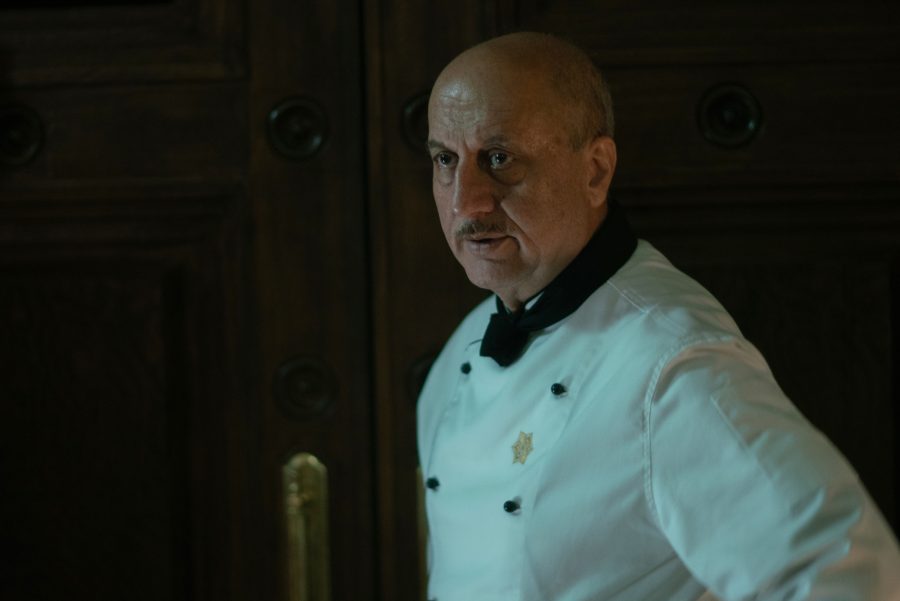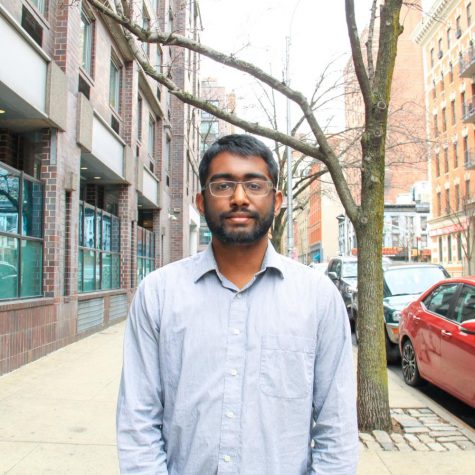Eleven years ago, the Indian metropolis of Mumbai was brought under siege by Pakistani terrorists in a deadly attack. A popular restaurant, two hospitals and the Taj Mahal Palace Hotel were attacked, and 164 people were killed. For three days, the terrorists held up camp in the Taj, while the surviving guests and staff banded together to save one another from more bloodshed.
At the time, legendary Bollywood actor, teacher, author and motivational speaker Anupam Kher was shooting a film six or seven miles away. His heart and mind were elsewhere, stirred by the chaos taking place in a city he loved and the hotel where his friends resided.
“It was a horrifying, nightmarish, reality TV but that was what was going on,” Kher said in an interview with WSN. “A few of my friends died in that attack. A very dear friend of mine who was the general manager of [the Taj], he lost his wife and two children there. There are certain things that get imprinted on your mind.”
Now Kher acts in “Hotel Mumbai,” a film that recounts the events of those three days. It opens this week and co-stars Dev Patel, Nazanin Boniadi and Armie Hammer.
Kher plays Chef Hemant Oberoi, the head chef of the Taj and one of the real people depicted in the movie. Kher, who was able to meet Oberoi, admired the man whose leadership came across in the moment of crisis. As he did in real life, Oberoi immediately springs into action in the film when the attacks are underway, inspiring his staff and helping the guests to safety with his own intricate knowledge of the hotel.
The city of Mumbai has always occupied a special place in Kher’s life. He was brought up in a small north Indian town called Shimla with no easy gateway into acting. No one else in his family pursued the arts. After graduating high school, he went to Chandigarh and later Delhi to study drama in college, before becoming a teacher in Lucknow at age 23. On June 3, 1981, he ventured to Mumbai to try his luck in Bollywood, but struggled for two to three years, even experiencing homelessness for a short period of time.
“In the early ‘80s, if you didn’t have long hair you were not considered to be an actor,” Kher said. “I was balding, I was thin, and I had a diploma and gold medal from drama school, but that didn’t mean anything. I finally got my first break when I was 28 to play a 65-year-old man [in ‘Saaransh’] which was a sensational debut.”
Thirty-five years later, Kher has appeared in over 500 films, including successes in Hollywood like “Silver Linings Playbook” and “The Big Sick.” Despite his emotional connection to the attack itself, he had no hesitation in taking the role because of his confidence in the script and the preparedness of director Anthony Maras. Kher especially felt his own responsibility to tell a story that is a tribute to the survivors and families of those who died.
“It’s a story of compassion, it’s a story of ordinary heroism, apart from great, unbelievable tragedy,” Kher said. “It’s important to tell people what happened and how other people came out of nowhere and became unlikely heroes.”
Kher commands the screen, often with silence, playing a leader who desperately suppresses his fear, anger and dread for the sake of his guests.
But the film is still very much an explosive thriller and that tone was carried through to the set itself. Most of the interior scenes of the Taj were shot in Adelaide, Australia, and were completed first in the shooting schedule. To simulate the attack for the cast, Maras would play recorded gunshots with giant amps on set, recreating the tension from scratch. The crew only filmed a few exterior scenes at the attack sites in India and near the Taj.
Despite how serious and intense their on-set experiences were, the cast and crew still bonded thoroughly, often getting dinners after twelve or thirteen hour days.
“We will get into a cab, me, [Armie Hammer], everybody, and the cab driver will always be an Indian. And he will never charge me,” Kher said. “That happens in New York, also. We are not actors for our countrymen, we are a part of their life.”
After filming was done, Kher said he felt as if he had gained new family members. Most of his scenes were with Patel, who plays a Sikh waiter named Arjun. One of the attack sites was Chhatrapati Shivaji Terminus railway station, the same place where Patel had shot the song “Jai Ho” from his breakout film “Slumdog Millionaire” only a few months prior. His character Arjun is actually a composite character representing different staff members that Maras and co-writer John Collee interviewed. In the film, Oberoi acts like a father figure to him.
“I think it’s easy to like Dev Patel. He does not hold back his affection,” Kher said. “Also I think Dev must have seen me in my movies, and if not then his parents must have seen hundreds of my movies. So I was not meeting Dev Patel the star, I was meeting Dev Patel the fan. So, it was important for me to be good to him without wanting to sound arrogant.”
The film is being released at a critical time as the world still reckons with the devastating attack at the Christchurch mosque in New Zealand. But there is a constant air of truth, on the part of the actors, script and director, that prevents “Hotel Mumbai” from ever feeling exploitative. Kher believes the film will resonate with audiences because it shows how normal people from all walks of life demonstrate solidarity and band together in a time of crisis.
“Togetherness sometimes comes out of tragedy,” Kher said.
Kher also thinks the film can provide a necessary catharsis for those who have gone through trauma or know people who have just as it did for him. When “Hotel Mumbai” premiered at the Toronto International Film Festival, Kher had an extremely emotional response, recalling that he was crying and howling in the audience and on stage.
“Hotel Mumbai” is one of the few films in recent memory that works as both a thriller and a realistic drama, working to both entertain the audience and honor the survivors of tragedy.
Perhaps one of the most remarkable things about the aftermath of the Mumbai attacks was that Oberoi and his staff reopened one of the restaurants bombed in the hotel just three weeks later. As Kher puts it, tragedy is inevitable but it is critical to remember that life will go on and morale cannot, and should not, be defeated.
A version of this article appeared in the Monday, March 25, 2019, print edition. Email Guru Ramanathan at [email protected].
























































































































































